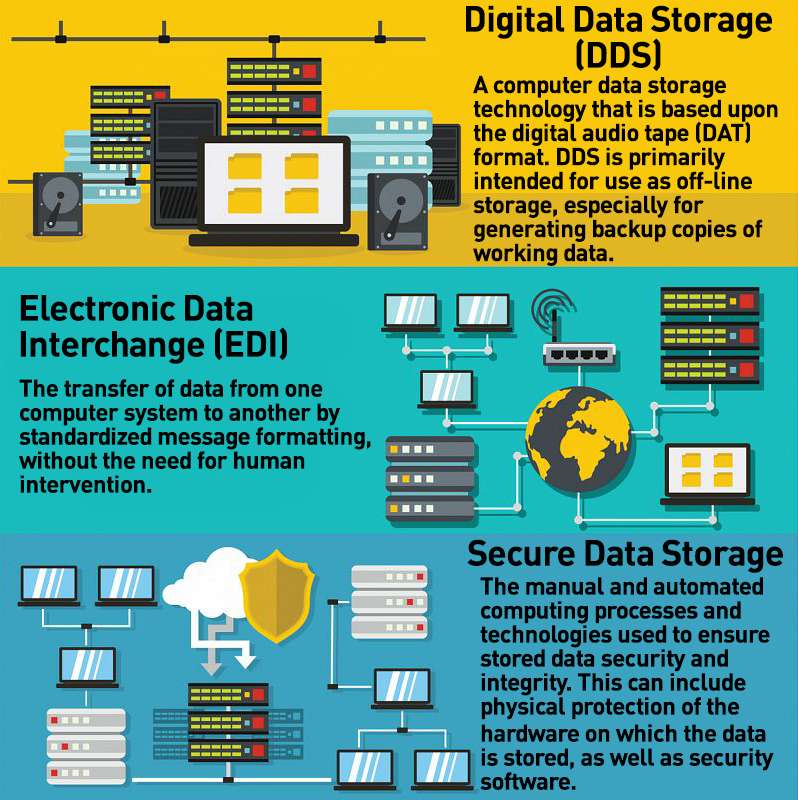Checking Out the Relevance of Data Devastation in the Context of Computer System Protection Solutions and Protecting Confidential Data
In an age where information breaches are increasingly common, the relevance of efficient data damage can not be overemphasized. Organizations has to adopt stringent procedures to make certain that delicate info is not only protected during its lifecycle yet additionally decisively eliminated when no more essential. The techniques employed for information obliteration, coupled with compliance to legal standards, play a pivotal duty in maintaining confidentiality and depend on. The ramifications of these methods extend past mere compliance, influencing a business's credibility and operational stability in the digital industry. What strategies can companies apply to enhance their data devastation protocols?
Understanding Information Damage
Information destruction is an important element of computer system protection that entails the permanent removal of information from storage tools to stop unapproved accessibility and possible data breaches. In a significantly electronic landscape, companies encounter heightened threats related to delicate information being poorly accessed or manipulated. Reliable information devastation safeguards against these hazards, ensuring that personal dataâEUR" such as client details, copyright, and economic recordsâEUR" can not be recovered after disposal.
Comprehending the value of information destruction extends beyond mere conformity with legal and governing structures; it is essential for maintaining business integrity and trust fund. When data is improperly handled or inadequately damaged, the consequences can be extreme, including monetary loss, reputational damage, and legal responsibilities.

Techniques of Information Removal

One common technique is information cleaning, which entails overwriting existing data with arbitrary patterns numerous times. This strategy renders the initial information irretrievable, making it a prominent selection for companies looking for to shield secret information.
One more method is degaussing, which utilizes an effective magnetic area to disrupt the magnetic domains on storage space gadgets, successfully eliminating the data. This technique is particularly effective for magnetic media however is not appropriate to solid-state drives.
Physical devastation is one more robust approach, involving the shredding or crushing of storage space devices. This technique warranties that information recuperation is virtually difficult, making it excellent for highly sensitive info.
Last but not least, security can work as a corresponding strategy to data removal. By encrypting information before removal, companies can add an added layer of safety, guaranteeing that even if remnants are recouped, they continue to be hard to reach without the decryption trick. Each approach should be chosen based upon the level of information sensitivity and the details safety and security demands of the company.
Legal Compliance and Data Safety
Organizations should browse an intricate landscape of lawful demands connected to information protection, particularly after applying methods of data elimination. Numerous policies, such as the General Data Defense Regulation (GDPR) and the Health And Wellness Insurance Policy Transportability and Responsibility Act (HIPAA), impose stringent standards on exactly how companies must get rid of and handle of sensitive information. Failing to comply with these guidelines can result in considerable legal repercussions, consisting of considerable penalties and reputational damages.
Data destruction processes should be meticulously documented pop over here to demonstrate compliance with appropriate regulations and requirements. This documentation not just serves as proof of adherence to lawful responsibilities however additionally highlights a commitment to protecting sensitive info. Organizations should additionally develop clear plans regarding information retention and damage timelines, making sure that data is not held longer than needed.

Moreover, routine audits and evaluations of data destruction practices are vital to preserve conformity and adjust to progressing lawful frameworks (data destruction). By proactively dealing with lawful requirements, organizations can mitigate risks linked with information breaches and show their commitment to data protection. Ultimately, prioritizing legal conformity in data devastation procedures is not simply a governing obligation, yet an essential element of a durable data protection strategy
Influence on Business Online Reputation
The track record of a service can be substantially affected by its technique to information damage and management. In today's electronic landscape, where data violations can take place at any moment, the failure to properly throw away delicate details can result in extreme effects. Organizations that improperly manage data devastation threat exposing personal customer information, which not just breaks privacy laws yet also wears down count on among customers and stakeholders.
A ruined online reputation can cause reduced consumer commitment, as customers become hesitant to involve with an organization that has shown oversight in safeguarding their information. In addition, unfavorable promotion bordering a data violation can have a lasting result, as possible clients might be prevented by the regarded absence of security. This can cause a straight decline in revenue and market share.
In addition, businesses that prioritize information destruction as part of their safety and security method can improve their reputation by showcasing their commitment to safeguarding sensitive info. By embracing stringent data monitoring methods, companies can not only mitigate risks yet additionally position themselves as trustworthy entities in their corresponding sectors, therefore reinforcing their overall brand name photo.

Ideal Practices for Secure Disposal
Executing best techniques for safe disposal of information is important for reducing dangers connected with information breaches and guaranteeing compliance with personal privacy guidelines. Organizations must take on a thorough information disposal use this link policy that lays out treatments for both digital and physical information devastation.
For physical information storage devices, such as hard disks, shredding or degaussing is advised to stop data recuperation. Additionally, organizations should preserve a chain of wardship paperwork throughout the disposal procedure, guaranteeing responsibility and traceability of disposed items.
For electronic information, making use of software that follows industry criteria for information wiping is critical. This software needs to overwrite existing information numerous times, making recovery virtually difficult. It is also crucial to validate the performance of the information destruction process through audits or third-party evaluations.
Educating staff members on secure disposal techniques includes one more layer of safety and security, as human error can frequently bring about information exposure. Routinely reviewing and updating disposal policies makes certain alignment with evolving regulations and technical innovations. By implementing these best practices, companies can substantially decrease the danger of unapproved information accessibility and enhance their total information protection method.
Verdict
To conclude, information destruction is a fundamental aspect of computer system security services that makes sure the security of private info from unauthorized gain access to. Applying reliable techniques of data removal, adhering to lawful conformity, and recognizing the effect on business reputation are crucial components of an extensive information security method. By taking on finest methods for secure disposal, organizations can promote depend on with clients and protect sensitive data, ultimately adding to an extra protected digital landscape.
In an era where data breaches are progressively common, the importance of reliable information devastation can not be overstated.Data devastation is a crucial element of computer safety and security that entails the long-term removal of information from storage space devices to prevent unapproved gain access to and prospective data breaches. Organizations needs great post to read to also establish clear policies regarding information retention and destruction timelines, making certain that information is not held longer than essential.
By proactively dealing with legal requirements, organizations can alleviate dangers connected with data breaches and show their dedication to data safety and security (data destruction). Eventually, prioritizing legal conformity in information destruction procedures is not simply a governing obligation, yet a fundamental element of a robust data protection technique